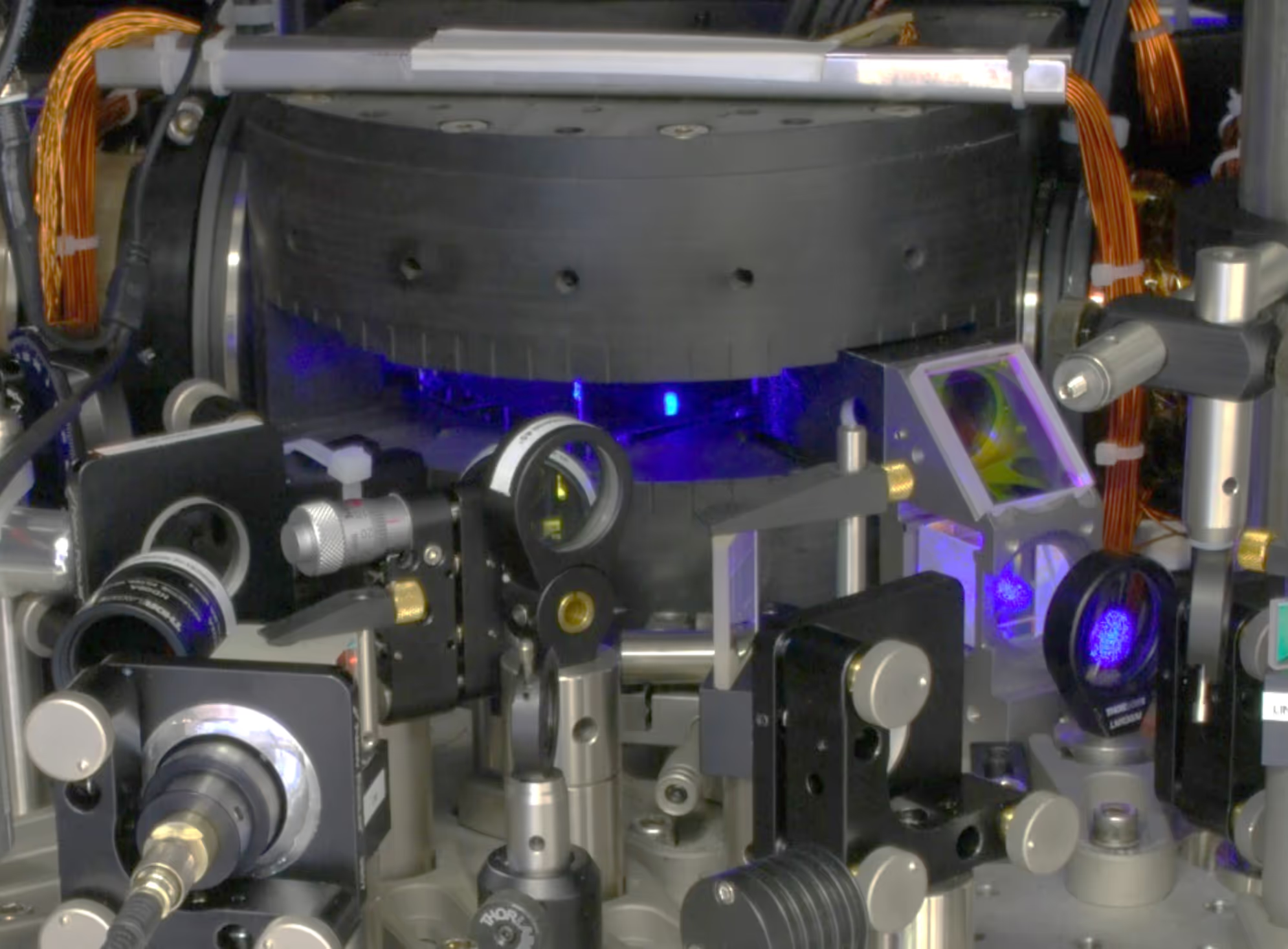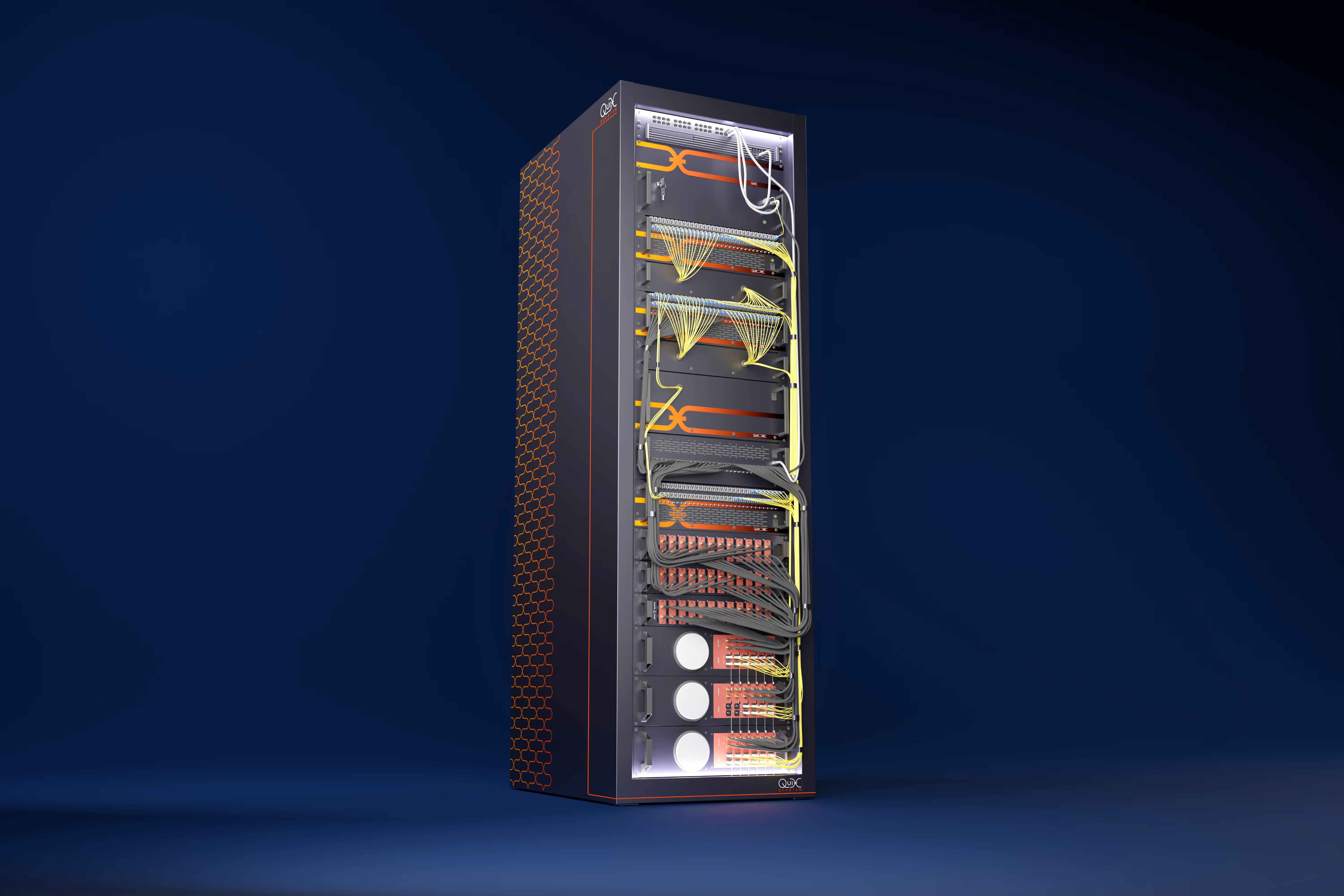Launch of AQuRA: quantum clocks in the real world
Modern atomic quantum clocks are the most precise and accurate scientific instruments ever created. Currently, these so-called optical atomic clocks are mostly found in physics laboratories, often filling an entire laboratory. The AQuRA-consortium brings together European universities, industry partners and EU metrology institutes in an effort to make quantum clocks more robust and compact. This will allow real-world applications like significantly improved and faster telecommunication networks, or underground exploration using fluctuations in gravity. The consortium led by the University of Amsterdam received a €7.5 million European Commission Horizon grant to achieve their goals over the next three and a half years.


Accurately measuring time is important in many settings. Telecom networks and the internet can only work quickly when the sending and receiving of data packages is accurately timed. The GPS system in your phone or car works because GPS satellites contain atomic clocks to time their signals extremely precisely. Even underground exploration – looking for caves or gas supplies, for example – can benefit from gravity measurements using extremely precise clocks.
Ready for technology
All of these applications would benefit from even more precise timekeeping. Devices for this do exist: modern optical atomic clocks are the successors of the ‘regular’ atomic clocks that have been used for all sorts of applications for decades. Unfortunately, these optical atomic clocks – the name comes from the fact that the atoms in the atomic clock emit light in the optical spectrum – use advanced quantum technology and currently mainly exist as huge and complex installations in physics laboratories.
Florian Schreck, who leads the new consortium, explains: “The European Union measures the state of development of technological applications in terms of the so-called technological readiness level, or TRL. For example, TRL-1 means that basic principles that might lead to an application have been observed, while the highest level, TRL-9, means that products are built and work in a real-world environment. With AQuRA, we aim to bring optical atomic clocks to the TRL-7 level: the level where the first prototype clocks work in a real-world environment.’
This would be a major improvement over the current state of the art. The iqClock consortium, AQuRA’s predecessor, managed to bring optical atomic clocks to level TRL-5, where the technology mostly still works in a controlled laboratory environment. Schreck: “In practice, our goal is to build a clock that would only go wrong by about five seconds over the entire age of the universe – but in such a way that you can take this clock for a bumpy ride aboard a truck, after which it still works perfectly.”
From the lab to the real world
Such an endeavour requires a collaboration between physicists, industry partners and experts in metrology – the science of measurement. Schreck, from the University of Amsterdam, and his collaborators found eight more partners from six different European countries who now together form AQuRA, short for Advanced Quantum Clock for Real-World Application. Together, the partners will build new clocks, test them in the field, strengthen supply chains for the different components – briefly: make the technologies that now exist in the lab ready for production and applications.
Schreck: “Atoms are the best time-keeping devices that we have. Every atom of a certain type is exactly the same, and as a result, time measurements using light emitted by atoms can be made extremely precise. The funny thing is that to control the smallest things we know of – atoms – we need the biggest machines that one can still build in a university physics lab. Hopefully four years from now, this contrast will be smaller. You won’t be able to buy an optical atomic pocket watch yet, but you may encounter extremely precise quantum clocks the size of a small cupboard out there in the real world.”
The AQuRA-consortium consists of the University of Amsterdam (the Netherlands), Menlo Systems GmbH (Germany), NKT Photonics A/S (Denmark), iXblue (France), Centre National de la Recherche Scientifique (France), Uniwersytet Mikolaja Kopernika w Toruniu (Poland), QuiX Quantum BV (the Netherlands), Vexlum Oy (Finland) and Physikalisch-Technische Bundesanstalt (Germany). The consortium is funded by a HORIZON Innovation Action grant from the European Commision.
More information is available on the AQuRA website: www.aquraclock.eu.




